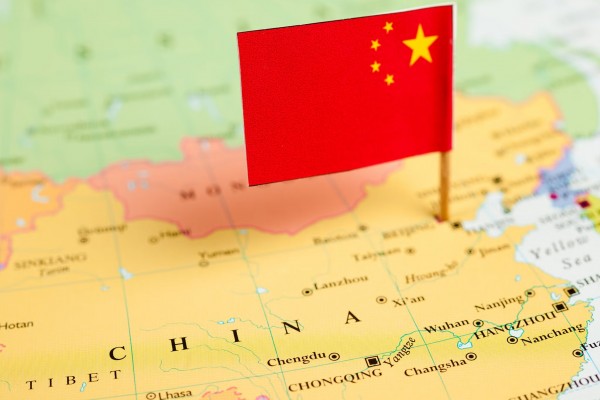Review №36 on Chinese Antitrust News from BRICS Antimonopoly Centre Experts
- A new edition of AMZ is being considered
- Xi Jinping emphasized the importance of the digital economy
- Xinhua: the digital economy is the "strong point" of China
- Zhang Gong on the prevention of competitive risks
- MIIT continues to fight monopolies
- SAMR is recruiting new employees
- Walled gardens on platforms
- Collusion of karaoke bars
- The court dismissed Bytedance's claim
- Advances in financial sector regulation
- Administrative monopoly in Shandong province· Penalty for trading WeChat accounts
A new edition of AMZ is being considered
On October 19th, the draft amendments to the Antimonopoly Law of the PRC were submitted to the 13th meeting of the 13th NPC Standing Committee for the first round of discussions. Important points of the new edition:
• business entities cannot abuse the advantage in data and algorithms, technologies and capital, as well as platform rules to eliminate or restrict competition;
• the use by dominant entities of data and algorithms, technologies and platform rules to create obstacles and impose unreasonable restrictions on other business entities is considered abuse of dominance;
• The State Council is obliged to strengthen control over transactions of economic concentration in socially significant areas, as well as in finance, scientific technology, media, etc.
• It is necessary to create a "safe harbour" regime and not prohibit economic concentration transactions if the participants can prove that it does not meet the criteria of the State Council's antimonopoly agency on market shares;
• the guarantees of antimonopoly enforcement were strengthened (the obligation of individuals and legal entities to facilitate the investigation, etc.);
• the amount of fines for violations has been significantly increased; added provisions on penalties for legal representatives and responsible persons of subjects participating in anticompetitive agreements, as well as penalties related to creditworthiness.
Source: News.cn
Xi Jinping emphasized the importance of the digital economy
On October 18th, the PRC Chairman spoke at a collective training session for members of the Politburo of the CPC Central Committee. He noted the importance of deep interpenetration of the digital and real economies, enhancing the transformation and renewal of traditional industries, promoting the emergence of new industries, forms and models of business, and the continuous strengthening, improvement and growth of China's digital economy. He also stressed that since the 18th Congress of the CPC (2012, when Xi Jinping took over as chairman), the party has attached great importance to the development of the digital economy, implements a strategy to turn China into a cyber power and a big data power, supports all kinds of Internet innovations, creates digital China and "smart" society. According to Xi Jinping, the development of the digital economy is a strategic choice in the face of a new scientific and technological revolution and industrial transformation and provides a competitive advantage in the international arena.
The chairman mentioned separately that its development should be regulated. He called for "maintaining a firm grip" in both development and regulation: to strengthen the legislative framework for market entry, competition review institutions and ensure fair competition, create an all-encompassing, multi-level and voluminous regulatory system, regulate all stages and all sectors before, during and after [the fact of the offence], to protect the legitimate rights and interests of consumers and platform workers; investigate unfair and anti-competitive practices.
Source: News.china
Xinhua: the digital economy is the "strong point" of China
State media calls for "riding the horse" of the digital economy in order to achieve high-quality economic development. For this, it is necessary to master scientific and technical laws and economic laws. "The digital economy should become an elixir from Baumol's 'cost disease'," the article says. The situation when "the winner takes everything" is unacceptable: platforms should promote the development of small and medium-sized businesses at all levels of production chains and not profit from them, like landowners; must build digital bridges, not dig digital ditches. Their mission is to help as many people as possible benefit from the current wave of digitalization, making the digital economy a tool for achieving shared prosperity.
Source: Xinwen
Zhang Gong on the prevention of competitive risks
The head of the Chinese market regulator, Zhang Gong, spoke with reporters about antitrust policy. He noted the importance of increasing the department's ability to prevent possible problems. To do this, it is necessary to strengthen the institution of monitoring and assessing the state of the market, to study and recognize the risks of imbalances intensively, to exercise far-sighted, purposeful and effective control. Zhang Gong once again reaffirmed the importance of developing a fair, transparent and predictable competitive environment, emphasized the commitment to the simultaneous development of the public and private sectors, and called for taking care of the present and long-term prospects. He noted that to form an "internationalized" business environment, it is necessary to make reasonable use of foreign experience, strengthen open cooperation and participate in global governance, and enhance the development of the ability to adapt to and apply international rules.
Source: Weixin
MIIT continues to fight monopolies
In an interview with the media, Minister of Industry and Informatization Xiao Yaqing spoke about the antitrust measures taken by the department. He identified three main areas: assistance in the formation of a fair, competitive environment in the market, the use of various tools to support small and medium-sized businesses, as well as the creation of a competitive market in the field of information communications. The Minister noted the department's success in regulating the Internet sector: the ministry used technical means for online inspections, tracked and corrected problems in a timely manner. So, in the products of the main digital companies from 69% were reduced to almost zero pop-ups that didn't close, and the percentage of redirects dropped from 90% to 1%. Instant messaging operators have also fixed certain issues with blocking [competitors].
Source: Baidu
SAMR is recruiting new employees
From 15th to 24th October, registration for the exam for those wishing to take public office takes place in China. Government agencies have already published a list of open vacancies and the number of employees planned to be hired. In 2022, SAMR is going to attract a total of 33 people - of which 18 employees will work in the Antimonopoly Bureau of the Administration. In March this year, Bureau Chief Wu Zhenguo noted that, compared to the antitrust enforcement structures in other countries worldwide, the Chinese authority has a relatively small workforce and needs to be strengthened in its regulatory capacity. According to information from the open media, citing Southern Metropolis, the Bureau currently employs no more than 50 people.
Source: Baidu
Walled gardens on platforms
In mid-September, the Ministry of Industry and Informatization called on the platforms to stop mutually blocking each other's links and services. A month after the announcement, Beijing Youth Daily correspondents checked what digital companies had done in that time. The research objects were social networks, links to marketplaces and payment instruments. The publication found that although the platforms are actively announcing changes, it is still difficult to share links on social networks (for example, WeChat does not play videos from the Kuaishou hosting but only offers to go to the site). Both WeChat and Weibo are incorrectly displaying links to Taobao, and the latter, in turn, only allows payment through Alipay. However, many other platforms have already implemented the ability to pay via WeChat Pay and Alipay. In addition, JD.com and Meituan also support their payment instruments and Apple Pay.
Source: Weixin
Collusion of karaoke bars
The Lucheng District Wenzhou Market Authority found illegal gatherings at 27 karaoke bars - the organizer of the illegal practices was the local entertainment association. The total amount of fines and penalties exceeded RMB 1 million. In response to the demand from affiliates to increase income, the association agreed to introduce a service fee (10%) from January to March this year, when the population celebrates the New Year according to the agricultural calendar. The practice was found to be a violation of the Law on Prices.
Source: Weixin
The court dismissed Bytedance's claim
Earlier, Bytedance (the developer of TikTok and its Chinese counterpart Douyin) filed a lawsuit against the Weibo microblog of unfair competition. The plaintiff alleged that using robots.txt documents, Weibo maliciously restricts its news platform Jinri Toutiao and prevents the platform's search bots from getting public information from the microblog. Bytedance demanded an end to the misconduct and compensation in the amount of 100 million yuan. Weibo responded by saying that the blacklisting of Jinri Toutiao is justified, as the news service has repeatedly infringed the copyright of other resources, which is why its access to microblogging is discouraged.
First, the court ruled that it had violated fair competition: Weibo's unilateral restrictions limited users' choices. The defendant disagreed and appealed, stating that restricting access through the robots.txt file is a manifestation of the Internet operator's right to autonomy and that Jinri Toutiao bots are not considered search engine programs. As a result, Bytedance's claim was dismissed.
Source: 163.com
Advances in financial sector regulation
Guo Shuqing, Chairman of the Party Committee of the People's Bank of China, spoke about the regulation of the financial sector. He noted the high degree of competition in the financial sector: there are more than 4,000 players in the Chinese banking system, and the market share of the four largest banks is only about 34%, which indicates that the market concentration is much lower than in developed countries. Guo Shuqing warned about the risks posed by the interpenetration of the financial sector and the Internet and also emphasized that some large platforms may engage in unfair competition and seek monopolization of the market in which "the winner will take everything." He drew attention to the equal treatment of all types of activities and all market participants and the implementation of a policy of "zero tolerance" to illegal actions. Financial regulators have identified multiple violations across 14 digital platforms (Ant Group, Tencent, JD Finance, ByteDance, Meituan.Finance, Didi Finance, etc.): by now, about half have already been eliminated, and even more effective results are expected by the end of the year. Guo Shuqing is also the chairman of the Banking and Insurance Regulatory Commission.
Source: News.cn
Administrative monopoly in Shandong province
In July of this year, the People's Government of Wenshang County called on 40 of its leading enterprises to purchase locally made industrial products - for this, they were promised a bonus of 1% of the positive difference in the volume of purchases compared to last year. The amount of the award was limited to RMB 1 million 3 for each enterprise. During the investigation, the government revoked its directive and took active steps to remedy the violation.
Source: SAMR
Penalty for trading WeChat accounts
Tencent has sued an internet company that illegally sold WeChat accounts to users. According to the company's policy, all superapplication accounts belong to it, and the registered user only gets the right to use them without the ability to give, lend, rent or offer for sale. The plaintiff's actions were detrimental to a business environment where entities gain a competitive advantage by legally doing business and complying with applicable rules. It could also undermine WeChat's creditworthiness and increase account management risks. The court found the violation and ordered the payment of compensation in the amount of 1.09 million yuan.
Source: Finance.sina




